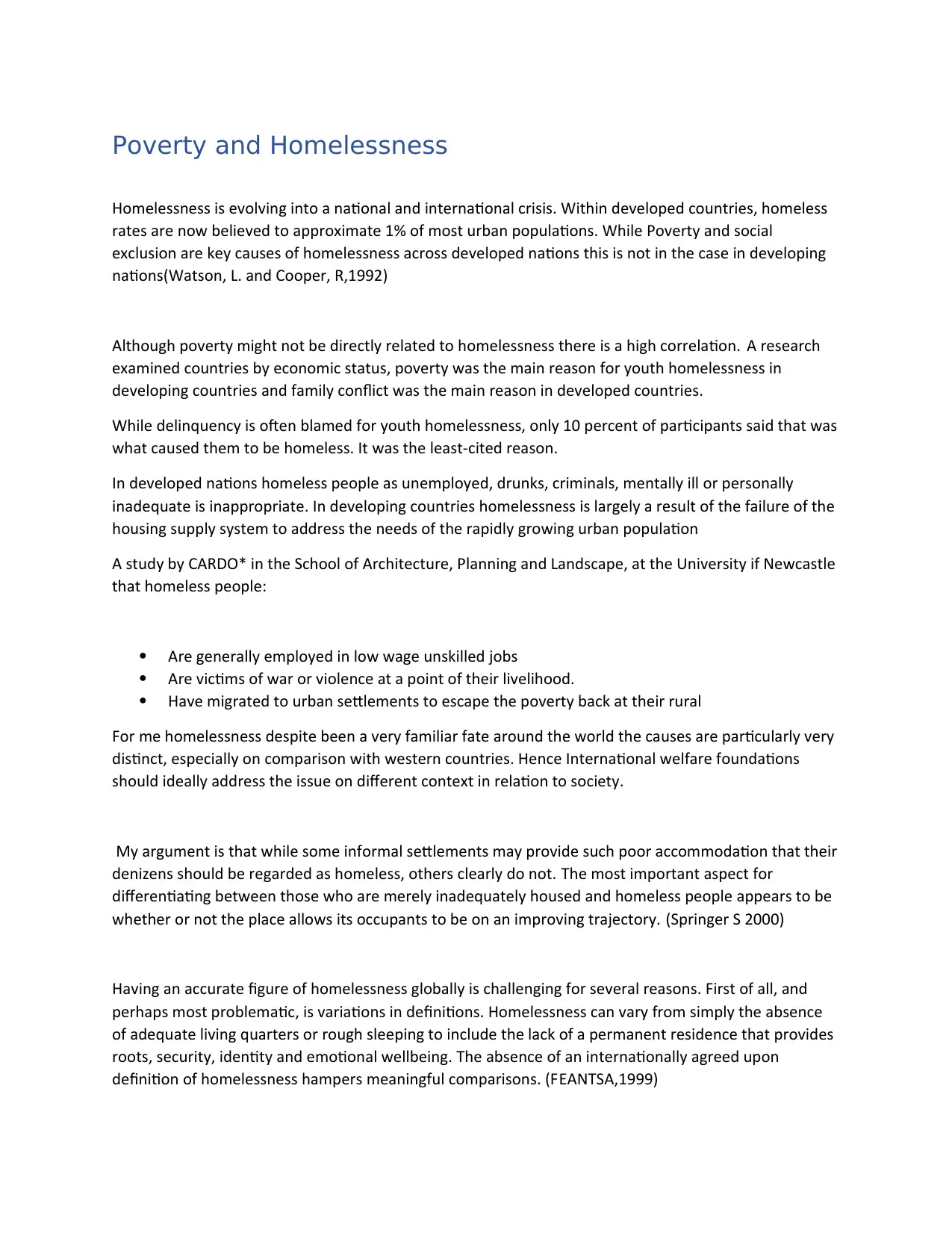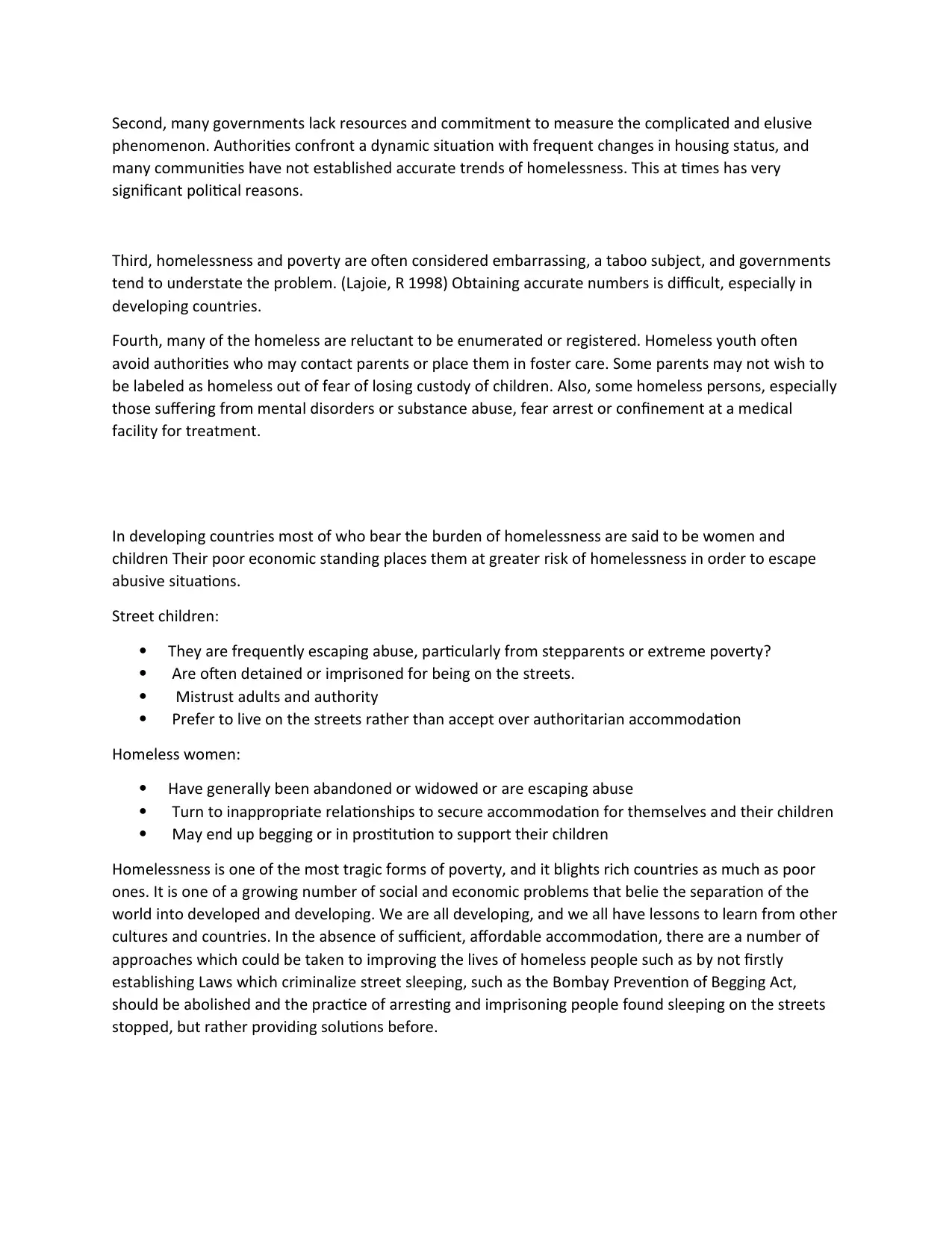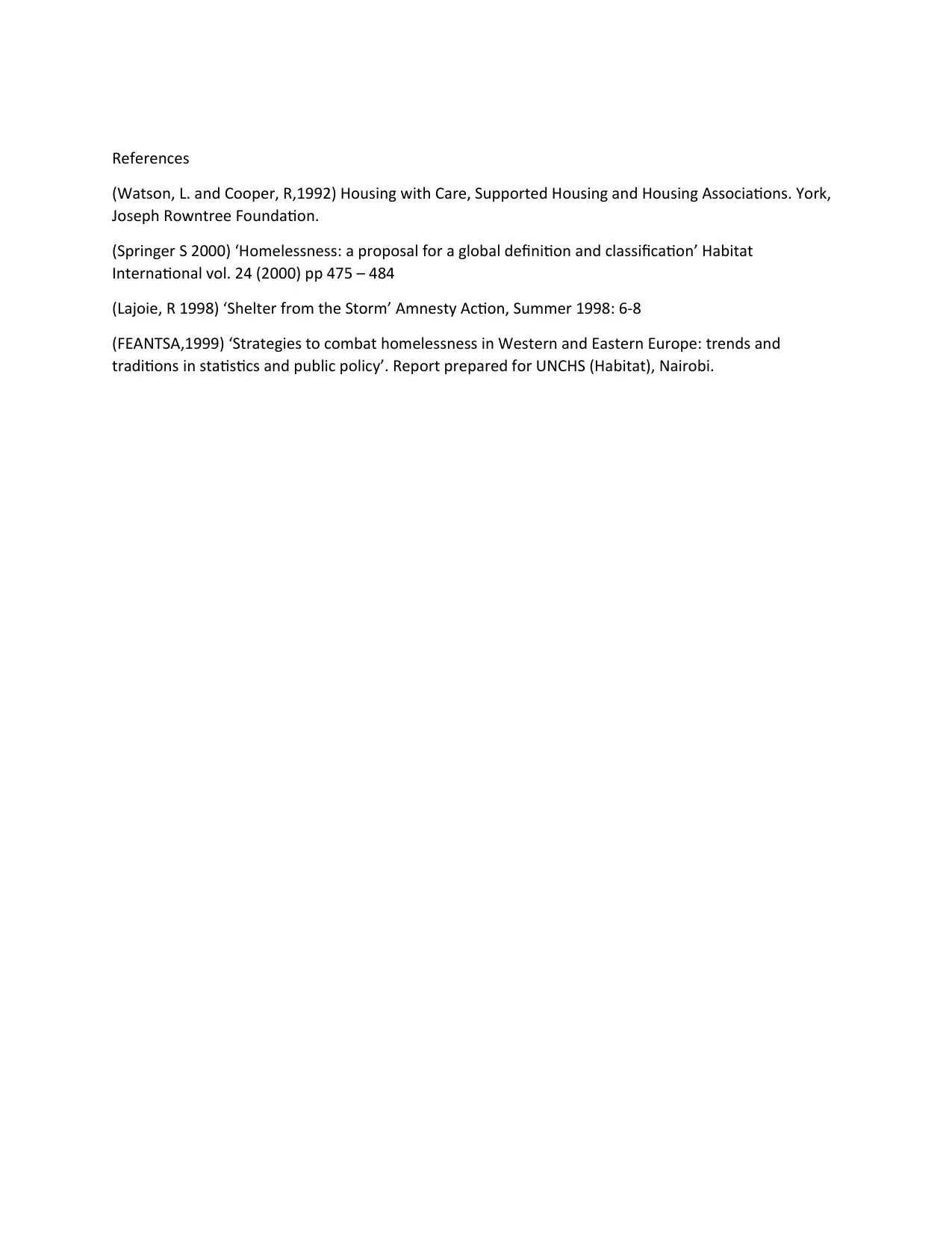Comparative Analysis of Poverty and Homelessness: An Essay
VerifiedAdded on 2021/06/16
|3
|947
|44
Essay
AI Summary
This essay examines the multifaceted issue of poverty and homelessness, highlighting its global prevalence and diverse causes. It differentiates between the situations in developed and developing countries, emphasizing the role of economic status, family conflict, and housing supply. The essay explores the challenges in defining and measuring homelessness, including definitional variations, resource limitations, and reluctance from those affected to be enumerated. It further analyzes the vulnerability of specific groups like women and children, as well as street children, who are often escaping abuse or poverty. The essay concludes by advocating for non-punitive approaches, suggesting the abolition of laws criminalizing street sleeping and focusing on providing solutions through adequate and affordable accommodation. The author also emphasizes the need for international cooperation and learning from different cultures and countries to address this growing social and economic problem.
1 out of 3








![[object Object]](/_next/static/media/star-bottom.7253800d.svg)